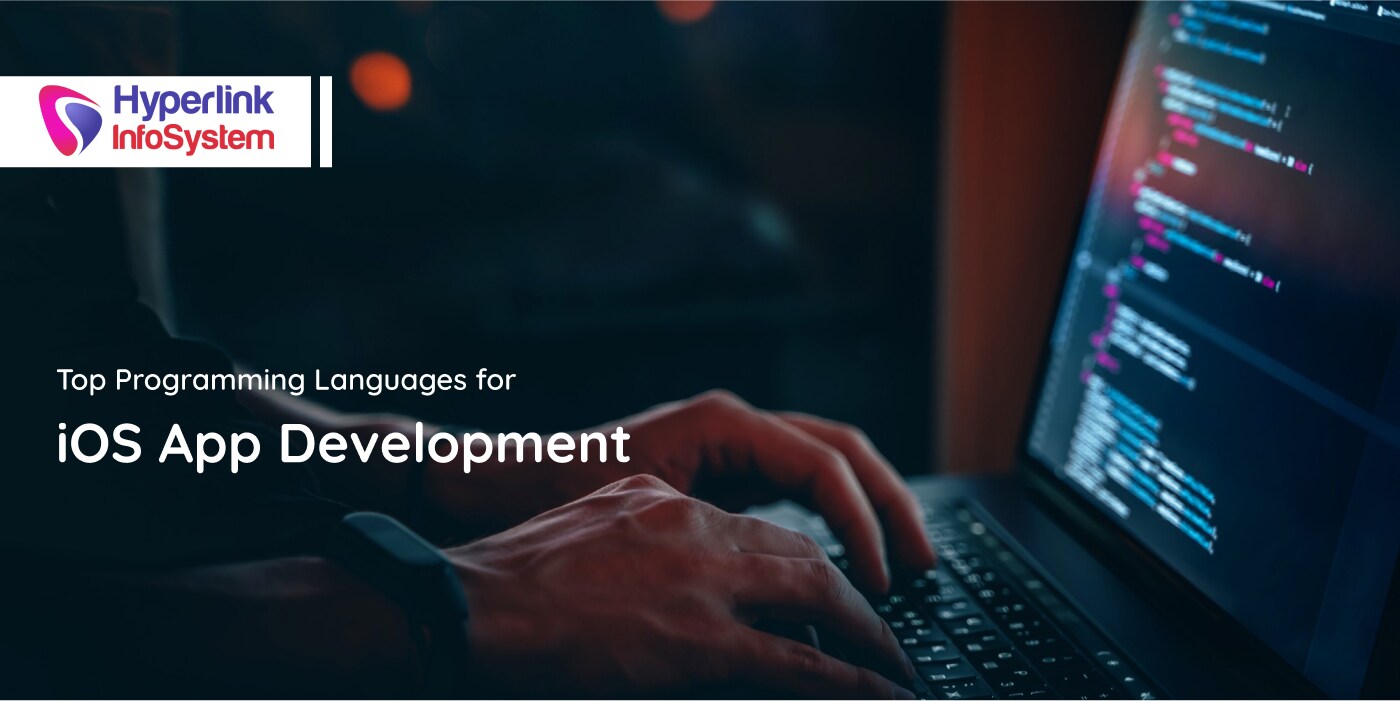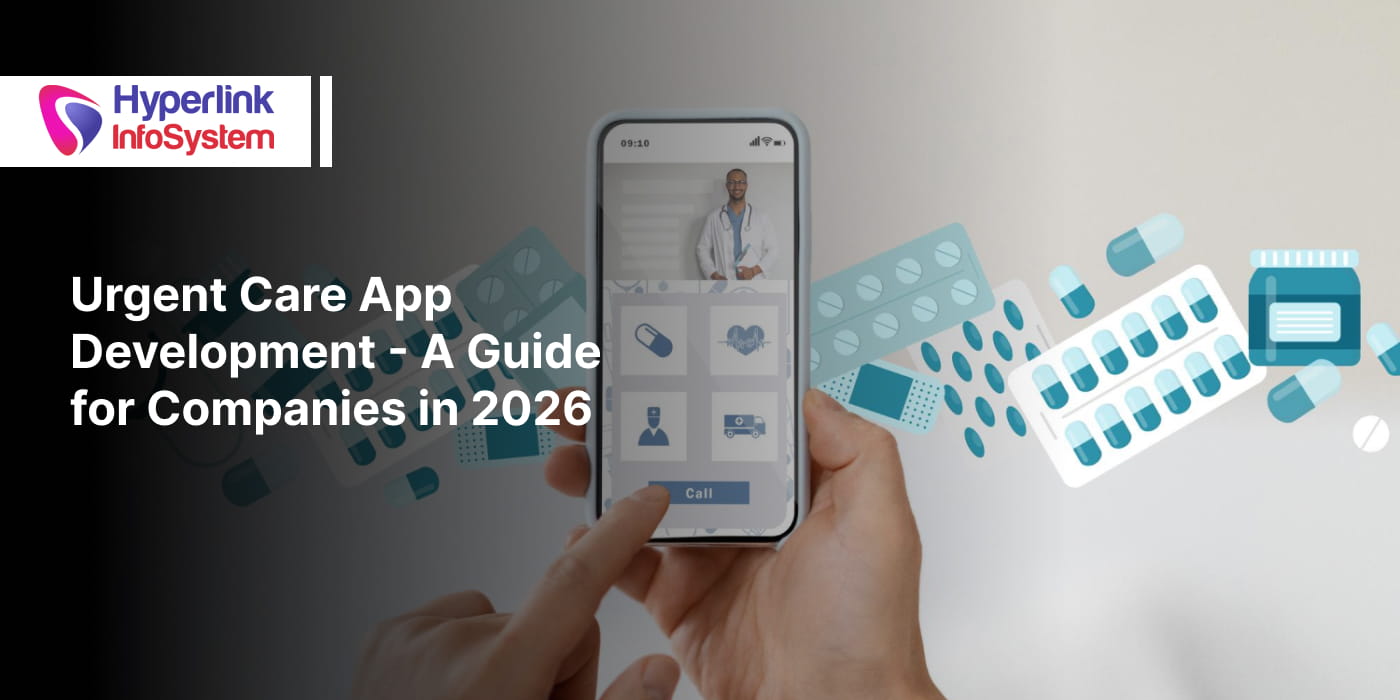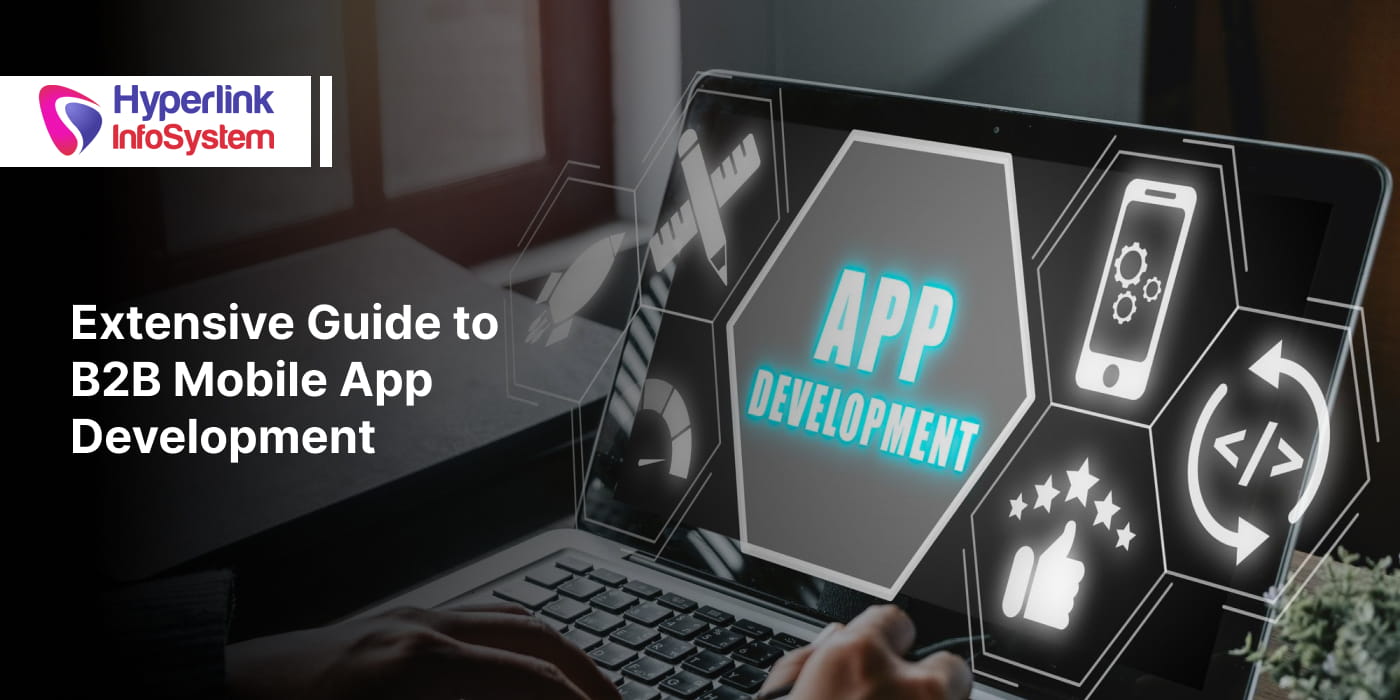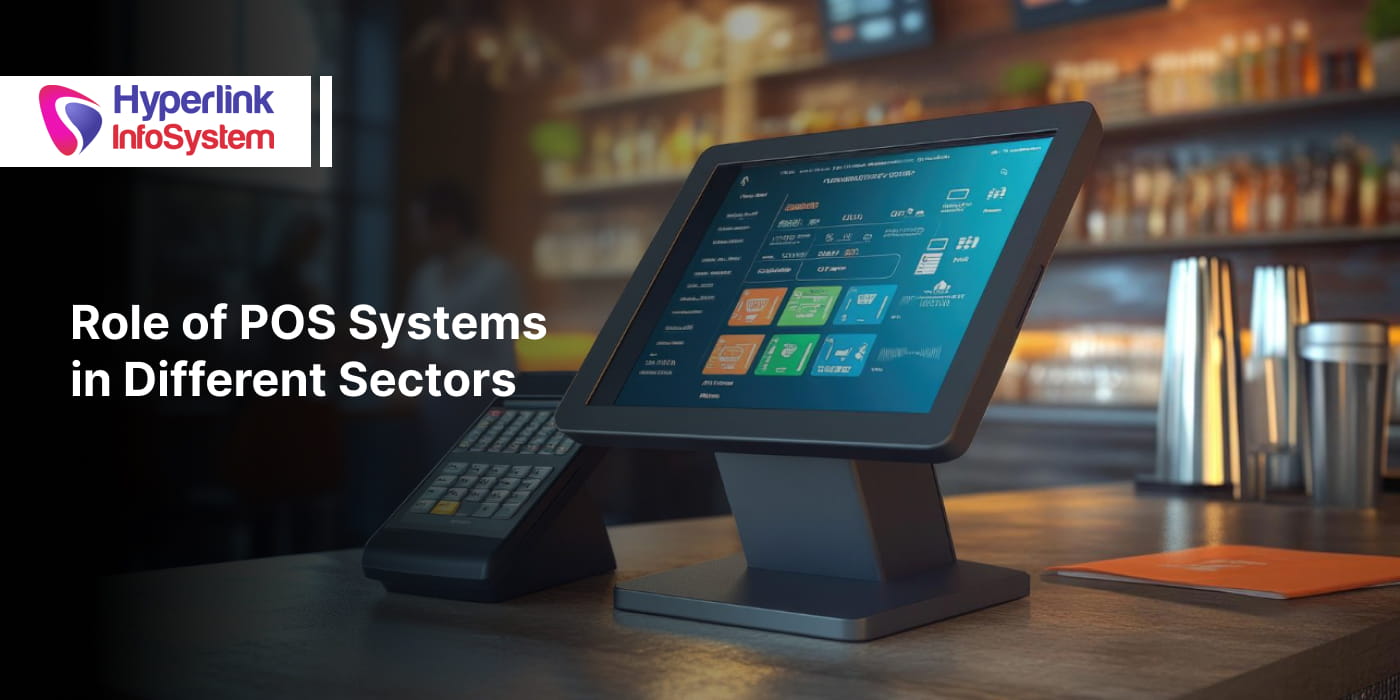Top Programming Languages for iOS App Development in 2026
Aug 2025

The landscape of iOS application development in 2026 appears to be more dynamic than ever. As Apple innovates in symphony across its product realm, from the iPhones and iPads to Apple Vision Pro, businesses are in a mad race to build apps that are futuristic and not merely functional. Whether it is smooth UI, very high speed performance, or seamless integration with the Apple ecosystem, perfection is expected by every user, and that cascades down to a fundamental choice: the programming language selection.
Much has changed over the years. Gone are the days when Objective-C ruled the scene. Of course, now Swift is the new kid on the block. But it is not the only option anymore. With the rise of cross-platform tools such as Flutter and React Native, and a greater need for solutions that are faster, scalable, and cost-efficient, more options are now on the table for businesses.
This shift in technology has forced every iOS app development company to transform, not only in their toolset, framework, and technologies but also in the way they look at app strategy, performance, and long-term value. High-tier iOS app development services today are about more than just coding; they will help you decide what language suits your product, audience, and growth objectives.
So, if you're planning to build an iOS app in 2026 or improve an existing one, your first step isn’t hiring a developer or designing a screen. It's understanding the language that will power your vision. Because with the right foundation, everything else falls into place.
Looking for expert advice? Partnering with the right iOS app development company, like Hyperlink InfoSystem, ensures you’re making the smartest tech decisions from the very beginning.
Why Programming Language Choice Matters in iOS App Development?
Building a high-performing iOS app in 2026 isn’t just about slick design or killer features—it’s also about what’s running behind the scenes. The programming language you choose plays a crucial role in determining the performance, scalability, and future readiness of your app. It’s like picking the right engine for your car: the smoother and more powerful it is, the better your ride.
Let’s break down why this choice matters more than ever in today’s iOS ecosystem.
1) Performance, Scalability, and Cost — The Technical Trio
Every app aims to be fast, fluid, and flawless. That begins with the language it's written in. Native languages like Swift offer top-tier performance because they’re optimized for Apple’s hardware and software. But there are also cross-platform options like Dart (used in Flutter) and JavaScript (React Native), which help reduce development time and cost by allowing code reuse across iOS and Android.
Choosing the right language can directly impact:
- App speed and responsiveness
- Server load and data efficiency
- Development budget and timeline
Smart businesses work with an experienced iOS app development company to strike the right balance between quality and cost, because one size never fits all.
2) Future-Proofing Your App
Apple never stops moving. New rounds of iOS updates, device rollouts, and framework changes come regularly, so apps must explore the development field for what comes next, not for what is now. Swift is updated almost regularly to fit Apple’s latest innovations, while an older language like Objective-C is rather slow to keep up with.
Hence, forward-looking iOS app development services must have such modern and flexible programming languages that are going to stay relevant and be supported for years to come; hence, costly rewrites are avoided along with staying ahead of the curve.
3) Developer Availability and Long-Term Maintenance
Building an app and leaving it is not the way to go; updates, bug fixes, enhancements, and improvements are a journey. Choosing a language with a select developer base is one thing; choosing a language with a large and active developer base is conducive to expanding your team or talent search in the future.
Whether you wish to hire iOS developers for a short sprint or want to build a fully dedicated team of iOS app developers for the long run, going for a widely used programming language like Swift, Dart, or JavaScript will give you a larger pool of talent to choose from, and also guarantee that your app doesn't stay stranded with a dead codebase.
4) Apple Support and the Developer Community
When you choose a language that stands strong, besides the likes of Apple and Swift or Google and Dart, it isn't just the syntax that you are paying for. You benefit from the collection of tools, libraries, references, and an active developer community in which you can forge solutions quickly.
For example, Swift works nicely with Xcode, one of the most well-coded tools for iOS app development, and an integrity framework under software systems such as SwiftUI. Doing so lends itself wonderfully to creating and innovating a higher-level user experience for the app.
In essence, the choice of the programming language is not just a technical detail; it's a strategic decision. If chosen right, it can help in the timely delivery of an app of high quality, fairly costing less, and worthy of confidence in its own endurance.
So, want to create an iOS app that's built to last? An iOS app development company that knows how to pick the perfect tech stack ought to come to The Hyperlink InfoSystem team can help.
Top iOS App Development Programming Languages in 2026
The tools we use to build apps are constantly evolving, and in 2026, the world of iOS programming languages is more versatile and innovative than ever. From native performance to cross-platform capabilities, developers have multiple options to build stunning, scalable apps. Here's a breakdown of the top iOS programming languages reshaping the future of mobile development—and why the best iOS app development companies are placing their bets on them.
1) Swift – The Gold Standard
There is no denying that Swift is the number-one language when it comes to modern iOS development. Maintained and updated to its highest level of performance by Apple, Swift happens to be the language used for almost any form of app development across the Apple ecosystem: iOS, macOS, watchOS, and tvOS.
Why is Swift still the prevailing antagonist in 2026?
- It is fast. The speed at which Swift compiles is just very fast, and it yields very smooth native performance.
- It is safe. It is strongly typed and has an error-handling feature; hence, it places performance reliability on your codebase.
It is prepared for the future. It also shares great interoperability with SwiftUI, Apple's declarative UI framework, which means developers can now concentrate on beautifying their user interfaces rather than working hard at it.
Top iOS app development agencies that uplift and mold apps to demand great quality and performance, because of their tight integration with Apple technologies and community, see Swift as the language and tool of choice.
Use cases: Fintech dashboards, healthcare apps with secure handling of data, and e-commerce apps with slick UI and fast load times.
2) Objective-C – The Legacy Backbone
Before Swift entered the scene, Objective-C was the language of choice for Apple developers. And while it's no longer the default, it still has a seat at the table.
Objective-C remains valuable in 2026 for several reasons:
- Legacy support. Many older apps and enterprise systems are built in Objective-C.
- Seamless integration. It works well with Swift and existing Apple APIs, making it great for hybrid codebases.
- Proven stability. Decades of usage have made Objective-C a reliable, battle-tested language.
If you're upgrading an older app or building on an existing Objective-C infrastructure, working with a dedicated team of iOS app developers who know both Swift and Objective-C is essential.
Use cases: Long-running enterprise apps, complex hybrid systems, or modular updates to legacy iOS software.
3) Dart (Flutter) – Cross-Platform for iOS and Android
Flutter, powered by the Dart programming language, has quickly risen to fame, and in 2026, it became a go-to solution for cross-platform mobile app development. Dart allows developers to write once and deploy across iOS and Android, making it incredibly efficient for businesses on a tight budget or timeline.
Why it’s loved:
- Hot reload. Developers can instantly view changes, speeding up the build-test cycle.
- Native-like performance. Despite being cross-platform, apps feel fluid and natural.
- Consistent UI. Flutter offers pixel-perfect rendering across platforms.
For startups, MVPs, or businesses aiming to launch fast on both platforms, it makes perfect sense to hire iOS developers who are also skilled in Dart and Flutter.
Use cases: Startup MVPs, simple productivity tools, social apps, or retail apps with moderate complexity.
4) JavaScript (React Native) – The Hybrid Workhorse
JavaScript might not be a native Apple language, but it powers some of the most widely used hybrid iOS apps through frameworks like React Native. In 2026, React Native is still going strong, backed by Meta (Facebook) and a vibrant open-source community.
Why choose it?
- Code reusability. Build for iOS and Android with one codebase.
- Faster time to market. Ideal for businesses that want quick deployment.
- Massive community support. Tons of plugins and pre-built components.
Many modern apps—from chat platforms to e-commerce frontends—are built on JavaScript frameworks. By working with a dedicated team of iOS app developers who understand React Native, you can rapidly deliver cross-platform experiences without compromising too much on quality.
Use cases: Content-based apps, internal enterprise tools, event platforms, and travel apps.
5) Kotlin Multiplatform – Shared Logic for iOS & Android
Traditionally seen as an Android-first language, Kotlin has evolved into a multiplatform solution that’s gaining attention for iOS development too. Kotlin Multiplatform allows developers to write shared business logic while keeping UI layers native.
What makes it exciting:
- Code sharing without UI compromise.
- Clean, modern syntax.
- Backed by JetBrains and growing in enterprise adoption.
Many iOS app development services are starting to adopt Kotlin Multiplatform when building apps that require robust logic shared across platforms but still demand a native iOS look and feel.
Use cases: B2B platforms, financial apps, logistics dashboards, or apps with complex backend logic.
6) C# (Xamarin/.NET MAUI) – The Microsoft Ecosystem’s iOS Ally
For businesses already rooted in the Microsoft ecosystem, C# with Xamarin or .NET MAUI is a natural extension for mobile development. In 2026, .NET MAUI has streamlined development for iOS, Android, macOS, and Windows using a single C# codebase.
Why it works:
- Unified UI and business logic.
- Perfect for enterprise and internal apps.
- Backed by Microsoft, ensuring long-term support.
It’s especially ideal for enterprise clients who want to integrate mobile apps with existing .NET infrastructure—and are looking for a reliable iOS app development company that understands how to bridge both ecosystems.
Use cases: Enterprise productivity apps, CRM extensions, employee-facing apps within Microsoft-heavy organizations.
That wraps up the key programming languages shaping iOS app development in 2026. From native excellence with Swift to the efficiency of cross-platform tools, businesses now have more choices—and flexibility—than ever.
How to Choose the Right Programming Language for Your iOS App?
So, you’re ready to build an iOS app in 2026. But before jumping into design or hiring developers, you face one of the most critical questions: which programming language should power your app? There’s no universal answer—but there is a smart way to decide.
The right language depends on more than just tech specs. It’s about aligning your business goals, user experience expectations, and long-term plans with the capabilities of each platform. Here’s how to make that decision with confidence.
1) Match the Language to Your App Type
Different kinds of apps call for different approaches:
- Native apps (like banking or healthcare apps) demand performance, speed, and security. Swift is your best bet here.
- Hybrid or cross-platform apps (like event or retail apps) often benefit from Flutter (Dart) or React Native (JavaScript) for faster, budget-friendly deployment across iOS and Android.
- Enterprise apps may require tight backend integration and shared codebases, making C# (.NET MAUI) or Kotlin Multiplatform solid choices.
- MVPs and startups looking to test ideas quickly often turn to cross-platform solutions like Flutter to save time and resources.
At Hyperlink InfoSystem, we analyze your app’s core functionality, performance expectations, and user flow before recommending the most suitable stack.
2) Consider Your Team Size, Budget, and Timeline
Your resource availability will directly influence your language choice:
- Small teams or startups may prefer languages that offer faster development cycles and require fewer specialists, like Flutter or React Native.
- Larger teams with broader tech expertise may benefit from Swift’s native capabilities or Kotlin MPP’s backend-sharing power.
- Tight budgets and deadlines? Flutter’s single codebase for iOS and Android is a favorite for delivering MVPs at lightning speed.
When you hire iOS app developers from a top-tier company like Hyperlink InfoSystem, you get a team that matches your business scale, not just the code.
3) Think Long-Term: Maintenance & Apple Ecosystem Changes
Apps aren’t just launched—they live, evolve, and grow. The language you pick should support:
- Ongoing OS updates from Apple
- Scalable architecture for new features
- Easy onboarding for future developers
Swift is always in sync with Apple’s latest releases and updates. Meanwhile, Flutter and Kotlin Multiplatform are evolving fast with strong community support. Choose a language with momentum, not one on its way out.
Hyperlink InfoSystem’s dedicated team of iOS app developers doesn’t just build for today—they plan for tomorrow, ensuring your app can evolve with the Apple ecosystem.
4) Insights from a Leading iOS App Development Company
At Hyperlink InfoSystem, we’ve built hundreds of successful iOS apps across industries—fintech, healthcare, e-commerce, logistics, travel, and more. Here's what we’ve learned:
- There’s no “one-language-fits-all” approach.
- What matters is aligning business needs with technical possibilities.
- It’s not just about the trendiest tool—it’s about the right fit for your goals.
Whether you're building a native powerhouse or launching a cross-platform MVP, our experts help you make tech decisions that set your app up for long-term success.
Need help choosing the best tech stack? Let Hyperlink InfoSystem be your iOS development partner—our expertise, innovation, and flexible hiring models are built to deliver results.
Best iOS App Development Tools in 2026
Building an exceptional iOS app isn’t just about choosing the right programming language—it’s also about picking the right tools. In 2026, the iOS development landscape is more powerful and streamlined than ever, thanks to an impressive range of development environments, UI kits, frameworks, and libraries.
Whether you're creating a native iOS app or a cross-platform solution, these are the tools top iOS app development companies like Hyperlink InfoSystem rely on to turn ideas into high-performing apps.
1) Xcode – The Official Powerhouse
When it comes to iOS app development services, Apple’s own Xcode remains the gold standard. As the official integrated development environment (IDE), it’s the go-to tool for Swift and Objective-C development.
Why developers love it:
- Seamless interface with Apple SDKs
- Real-time debugging and testing tools
- Full support for SwiftUI, Storyboards, and Interface Builder
With each iOS release, Xcode continues to evolve—making it essential for apps built within Apple’s native ecosystem.
2) SwiftUI – Modern UI Building for iOS
In 2026, SwiftUI has become the go-to UI framework for building stunning, responsive user interfaces across all Apple devices. It’s declarative, intuitive, and integrated directly into Xcode.
Key benefits:
- Build once, deploy everywhere (iPhone, iPad, Watch, Mac)
- Less code, more functionality
- Smooth animations and live previews
iOS app development companies are embracing SwiftUI not just for aesthetics, but for its ability to significantly cut development time without sacrificing quality.
3) Flutter & React Native Toolkits – Cross-Platform Champions
For businesses that want to target both iOS and Android, Flutter (by Google) and React Native (by Meta) remain top choices. These toolkits enable faster time to market, especially for MVPs and startups.
- Flutter: Uses Dart and offers a highly customizable UI with native-like performance.
- React Native: Uses JavaScript, and is known for its vast community and reusable components.
When you hire iOS developers experienced in these toolkits, you unlock cross-platform potential without doubling your development budget.
Popular Libraries That Boost Productivity
Beyond IDEs and frameworks, several third-party libraries and tools help streamline the development process, improve performance, and enable powerful backend integrations:
- Firebase: Real-time database, crash analytics, and cloud messaging—all in one.
- Alamofire: Elegant HTTP networking in Swift for easier API integration.
- Realm: A lightweight, high-performance alternative to Core Data for local data storage.
- Lottie: Delightful animations with minimal effort.
- Sentry: Real-time error tracking and performance monitoring.
These tools are commonly found in the recommended stack by iOS app development, ensuring robust, scalable, and engaging mobile applications.
What the Best iOS App Development Companies Recommend
At Hyperlink InfoSystem, our dedicated team of iOS app developers tailors the tech stack to each project’s unique needs. But in most cases, our go-to combo includes:
- Swift for core development
- SwiftUI for UI
- Xcode as the primary IDE
- Supporting tools like Firebase, Alamofire, and Realm
- Flutter or React Native when cross-platform is a priority
This modern stack allows us to deliver high-performance, future-proof apps that are easy to maintain and scale.
Want to build an iOS app that’s fast, beautiful, and built using the best tools in the industry? Partner with an iOS app development company that gets it right from day one — Hyperlink InfoSystem.
Why Hire Expert iOS Developers for Projects in 2026?
In 2026, iOS app development isn’t just about writing code—it’s about building experiences that perform flawlessly across devices, comply with Apple’s latest guidelines, and scale as your business grows. With the growing sophistication of the iOS ecosystem, partnering with expert developers has become more crucial than ever.
So, why hire iOS developers instead of taking shortcuts with generalists or low-cost freelancers? Let’s break it down.
1) The iOS Ecosystem Is Constantly Evolving
From iOS 19 and beyond, the Apple ecosystem continues to expand, with updates to ARKit, SwiftUI, SiriKit, privacy controls, and cross-device experiences. Staying current means more than knowing Swift; it means adapting to rapid changes in:
- Xcode and developer tools
- Apple Silicon and hardware shifts
- App Store regulations and best practices
A trusted iOS app development company stays ahead of these updates and ensures your app is fully optimized, compliant, and ready to leverage Apple’s newest features.
2) Experts Know the Language—and the Landscape
Today’s apps often require multi-language expertise, Swift for native features, Dart or React Native for cross-platform compatibility, and Objective-C or Kotlin MPP for legacy or shared logic integration. Hiring developers with a wide range of technical knowledge allows you to:
- Build smarter architectures
- Choose the right tools for each module
- Future-proof your app’s core functionalities
A dedicated team of iOS app developers brings this depth of experience to every stage of development, from planning to launch and beyond.
3) You Get Speed, Quality, and Innovation—All at Once
With seasoned iOS developers, you don’t have to compromise between speed and quality. Their experience in using the best iOS app development tools - from Xcode and SwiftUI to Firebase and Realm—means:
- Faster development cycles with fewer bugs
- Clean, scalable code that’s easy to maintain
- Innovative solutions that enhance user experience
When you hire iOS developers through a top-tier firm like Hyperlink InfoSystem, you're not just outsourcing a task—you’re building with a team that treats your product like their own.
4) When and How to Hire iOS Developers for Your Project
Whether you're a startup validating a new idea or an enterprise upgrading legacy systems, knowing when to hire matters just as much as who to hire.
When to hire:
- You’re starting from scratch and need help choosing the right language or stack
- You’re scaling and need a reliable team to support new features
- You want to re-engineer or migrate an existing app to modern standards
How to hire:
- Choose a reputable iOS app development company with proven experience
- Opt for a dedicated team of iOS app developers for long-term support and continuity
- Look for flexibility in engagement—hourly, full-time, or project-based
At Hyperlink InfoSystem, we offer all this and more—with customizable hiring models and access to world-class developers who blend creativity, efficiency, and deep technical knowledge.
Building an app for 2026? Hire expert iOS developers from Hyperlink InfoSystem and bring your vision to life—with speed, quality, and future-ready innovation.
Why Choose Hyperlink InfoSystem as Your iOS App Development Partner?
When you're building for iOS in 2026, you don’t just need developers—you need the right iOS app development company. One that understands not just Swift or Flutter, but your business, your goals, and your need to innovate fast without breaking things.
That’s where Hyperlink InfoSystem steps in.
We don’t just build apps—we build digital success stories backed by smart code, seamless design, and future-ready strategy. Here’s why companies across the globe choose us as their iOS development partner.
1) Deep Expertise Across All Major Languages & Tools
From Swift and SwiftUI to Flutter, Dart, React Native, and even Objective-C and Kotlin MPP, our developers are fluent in the tools that power today’s iOS ecosystem.
Whether you need a sleek native app, a robust enterprise-grade platform, or a cost-effective cross-platform MVP, our team has done it—and done it well.
Bonus: We don’t just follow Apple’s trends. We anticipate them.
2) Proven Track Record of iOS Excellence
Over the years, Hyperlink InfoSystem has delivered hundreds of high-performing iOS apps across industries—finance, healthcare, logistics, eCommerce, travel, education, and more. Our apps don’t just look great—they’re fast, secure, scalable, and App Store-ready.
Our results speak loudest:
- 1200+ mobile apps developed globally
- 95% client retention rate
3) A Process That Works—Every Time
We believe great apps are born from clear communication, clean code, and consistent support. That’s why our process is designed to keep you involved and informed every step of the way:
- Consultation – We understand your idea, challenges, and goals.
- Design – UI/UX that’s user-first and Apple-compliant.
- Development – Using the best iOS app development tools to build fast and right.
- Testing – Real devices, real feedback, real results.
- Deployment & Support – We launch, optimize, and keep improving post-release.
This full-cycle approach ensures quality, speed, and long-term success.
4) Dedicated Team of iOS App Developers
When you work with us, you don’t just hire a developer—you get a dedicated team of iOS app developers committed to your success.
Our teams are:
- Fully scalable based on your project needs
- Available for full-time, part-time, or hourly engagement
- Trained in Apple’s latest technologies and design standards
Whether you’re a startup or an enterprise, we build your dream app like it’s our own.
Ready to Build an iOS App That Makes a Difference?
At Hyperlink InfoSystem, we combine technical expertise, business insight, and creative energy to turn your idea into a world-class iOS app.
Hire iOS developers from Hyperlink InfoSystem today and future-proof your app for the Apple ecosystem and beyond.
Let’s build something amazing—together.
Conclusion
As we look ahead in 2026, the world of iOS app development continues to evolve at lightning speed. Whether you’re building a cutting-edge fintech solution, a sleek eCommerce app, or a user-focused healthcare platform, choosing the right iOS programming language can make or break your project.
From the power and modernity of Swift to the flexibility of Flutter’s Dart, the versatility of React Native with JavaScript, and the strategic advantage of Kotlin Multiplatform and .NET MAUI, each language offers something unique. But the real success comes from the language you choose and the team that brings it to life.
A trusted iOS app development company like Hyperlink InfoSystem doesn’t just code. We consult, guide, and build apps with precision using the best iOS app development tools, industry practices, and forward-thinking strategies. With a dedicated team of iOS app developers, we help you launch apps that are fast, scalable, secure, and truly future-proof.
Frequently Asked Questions
Swift is the top choice, thanks to its speed, safety, and Apple support.
Yes, with Flutter (Dart) or React Native (JavaScript) for cross-platform apps.
For faster delivery, better quality, and long-term support across Apple devices.
Xcode, SwiftUI, Flutter, React Native, Firebase, Realm, and more.
Latest Blogs

Is BlockChain Technology Worth The H ...
Unfolds The Revolutionary & Versatility Of Blockchain Technology ...


IoT Technology - A Future In Making ...
Everything You Need To Know About IoT Technology ...

Feel Free to Contact Us!
We would be happy to hear from you, please fill in the form below or mail us your requirements on info@hyperlinkinfosystem.com
Hyperlink InfoSystem Bring Transformation For Global Businesses
Starting from listening to your business problems to delivering accurate solutions; we make sure to follow industry-specific standards and combine them with our technical knowledge, development expertise, and extensive research.
4500+
Apps Developed
1200+
Developers
2200+
Websites Designed
140+
Games Developed
120+
AI & IoT Solutions
2700+
Happy Clients
120+
Salesforce Solutions

40+
Data Science

















